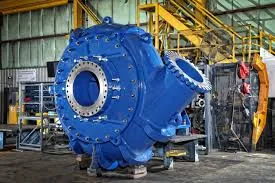TEL:
+86 13120555503
Georgian
- Afrikaans
- Albanian
- Amharic
- Arabic
- Armenian
- Azerbaijani
- Basque
- Belarusian
- Bengali
- Bosnian
- Bulgarian
- Catalan
- Cebuano
- Corsican
- Croatian
- Czech
- Danish
- Dutch
- English
- Esperanto
- Estonian
- Finnish
- French
- Frisian
- Galician
- Georgian
- German
- Greek
- Gujarati
- Haitian Creole
- hausa
- hawaiian
- Hebrew
- Hindi
- Miao
- Hungarian
- Icelandic
- igbo
- Indonesian
- irish
- Italian
- Japanese
- Javanese
- Kannada
- kazakh
- Khmer
- Rwandese
- Korean
- Kurdish
- Kyrgyz
- Lao
- Latin
- Latvian
- Lithuanian
- Luxembourgish
- Macedonian
- Malgashi
- Malay
- Malayalam
- Maltese
- Maori
- Marathi
- Mongolian
- Myanmar
- Nepali
- Norwegian
- Norwegian
- Occitan
- Pashto
- Persian
- Polish
- Portuguese
- Punjabi
- Romanian
- Russian
- Samoan
- Scottish Gaelic
- Serbian
- Sesotho
- Shona
- Sindhi
- Sinhala
- Slovak
- Slovenian
- Somali
- Spanish
- Sundanese
- Swahili
- Swedish
- Tagalog
- Tajik
- Tamil
- Tatar
- Telugu
- Thai
- Turkish
- Turkmen
- Ukrainian
- Urdu
- Uighur
- Uzbek
- Vietnamese
- Welsh
- Bantu
- Yiddish
- Yoruba
- Zulu
Telephone: +86 13120555503
Email: frank@cypump.com
თებ . 18, 2025 03:28 Back to list
Septic Tank Pumps
Finding the right septic pump for your needs can be a critical decision for maintaining a smooth-running septic system. Understanding which features, capacities, and brands are the most reliable is crucial for homeowners and facility managers alike. Based on my extensive experience with septic systems, I am here to provide insights into why investing in a high-quality septic pump can save you both time and money in the long run.
Furthermore, consider the construction materials of the pump. Corrosion-resistant materials such as stainless steel or high-grade thermoplastics are often the best choices, particularly if you live in an area with harsh chemical or mineral content in the wastewater. Pumps with durable impellers and robust seals are also essential to withstand the constant pressure and presence of solids. Ease of maintenance is another consideration. High-maintenance pumps can be a burden in the long run. Look for features that simplify maintenance, such as clog-resistant designs and easy access to critical components. A pump with a clear and accessible design for routine checks and repairs can greatly extend its lifespan. The warranty and service support offered by the manufacturer are indicators of a pump's reliability and the company's trustworthiness. A substantial warranty period demonstrates the manufacturer's confidence in their product and provides peace of mind to the consumer. Moreover, accessible customer service and technical support can be invaluable when troubleshooting initial setups or when unexpected issues arise. In conclusion, selecting the right septic pump involves a comprehensive assessment of several factors, ensuring that your investment is wise and sustainable. Through thorough research and consideration of your specific needs, you can find a reliable septic pump that will serve efficiently for many years. Remember, prioritize quality and long-term performance over short-term cost savings. An informed purchase will not only uphold the integrity of your septic system but also safeguard the health of your household and the environment.


Furthermore, consider the construction materials of the pump. Corrosion-resistant materials such as stainless steel or high-grade thermoplastics are often the best choices, particularly if you live in an area with harsh chemical or mineral content in the wastewater. Pumps with durable impellers and robust seals are also essential to withstand the constant pressure and presence of solids. Ease of maintenance is another consideration. High-maintenance pumps can be a burden in the long run. Look for features that simplify maintenance, such as clog-resistant designs and easy access to critical components. A pump with a clear and accessible design for routine checks and repairs can greatly extend its lifespan. The warranty and service support offered by the manufacturer are indicators of a pump's reliability and the company's trustworthiness. A substantial warranty period demonstrates the manufacturer's confidence in their product and provides peace of mind to the consumer. Moreover, accessible customer service and technical support can be invaluable when troubleshooting initial setups or when unexpected issues arise. In conclusion, selecting the right septic pump involves a comprehensive assessment of several factors, ensuring that your investment is wise and sustainable. Through thorough research and consideration of your specific needs, you can find a reliable septic pump that will serve efficiently for many years. Remember, prioritize quality and long-term performance over short-term cost savings. An informed purchase will not only uphold the integrity of your septic system but also safeguard the health of your household and the environment.
Share
Latest news
-
Reliable Non-Clog Sewage Pumps with GPT-4-Turbo Tech
NewsAug.04,2025
-
High-Performance Air Pumps for Sand & Gravel | Efficient Transport
NewsAug.03,2025
-
ISG Series Vertical Pipeline Pump - Chi Yuan Pumps Co., LTD.|Energy Efficiency, Corrosion Resistance
NewsAug.03,2025
-
ISG Series Pipeline Pump - Chi Yuan Pumps | Energy Efficiency&Compact Design
NewsAug.03,2025
-
ISG Series Vertical Pipeline Pump - Chi Yuan Pumps Co., LTD.|High Efficiency, Low Noise, Durable
NewsAug.02,2025
-
ISG Series Vertical Pipeline Pump - Chi Yuan Pumps | High Efficiency, Low Noise
NewsAug.02,2025










